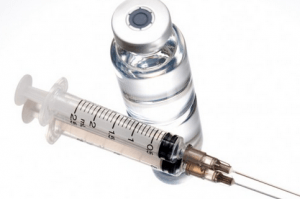Upper East Region to start anthrax vaccination this month
 The Upper East Regional Department of Agriculture will undertake animal vaccination exercise this April against the anthrax disease across the 15 municipalities and districts of the region.
The Upper East Regional Department of Agriculture will undertake animal vaccination exercise this April against the anthrax disease across the 15 municipalities and districts of the region.
Anthrax is a zoonotic disease caused by bacteria called bacillus anthracis. The disease was endemic in some districts of the region in 2023.
The vaccination exercise would check any possible outbreak as was experienced last year, which led to loss of livestock and one recorded human death in the Binduri District.
The situation compelled the Regional Public Health Emergency Management Committee (PHEMC) to place a ban on the movement of animals, sales, consumption of meat and its products.
The ban applied to cattle, sheep, goats and donkeys.
Alhaji Zakaria Fuseini, the Regional Director of the Department, told journalists about the impending exercise on the sidelines of the 2023 regional annual performance review meeting of the Department.
The meeting brought together municipal and district directors of MoFA, coordinating directors, planners and other stakeholders across the region, to review the Department’s performance for 2023, and strategise for 2024.
Alhaji Fuseini said: “Based on last year’s experience, we have made adequate preparation for animal vaccination. We had a last dosage from Cow Right that we have not yet utilized.”
April was the appropriate time to start with the vaccination exercise because “it is mostly the time grasses start shooting up, and that is the time we anticipate this outbreak,” he said.
“We have adequate quantities to take care of any outbreak, whilst we wait for supplies from government.”
Alhaji Fuseini advocated the need for conservation agriculture, which was a farming system that could prevent loss of arable lands and regenerate degraded lands.
With conservation agriculture, crop residue was used to feed livestock, and livestock droppings were equally used to enrich the soil.
“Conservation agriculture is the way to go because of climate change, and that is the surest way to address the issue of climate change. It is also more sustainable compared to the use of mineral fertilizer.”
“We are constantly on the field sensitizing farmers on the need for them to move into conservation agriculture,” the Regional Director said.
“However, we cannot do without the mineral fertilizers. Mineral fertilizers take relatively shorter time to release the plant nutrient element for plant uptake, whereas with organic, it releases it bit by bit,” he explained.
Alhaji Fuseini projected increases in food and livestock production in 2024 if farmers received the right agricultural inputs.
Mr Stephen Yakubu, the Regional Minister, congratulated the Department for its achievements in the year under review, and urged the personnel to continue to work to improve agricultural outcomes in the region.
Reverend John Akaribo, the Bolgatanga Municipal Chairman, Peasant Farmers Association of Ghana, in a separate interview, said if agriculture was considered as the engine of growth, there should be dedicated funding for it.
“Funding for agriculture is basically meant for emolument of staff. But when it comes to the actual work, there is no funding.
“With the ‘Planting for Food and Jobs two’, we were expecting to see a budget for irrigation. There is no mention of a single budget to rehabilitate even one existing dam,” he said.
Source: GNA
